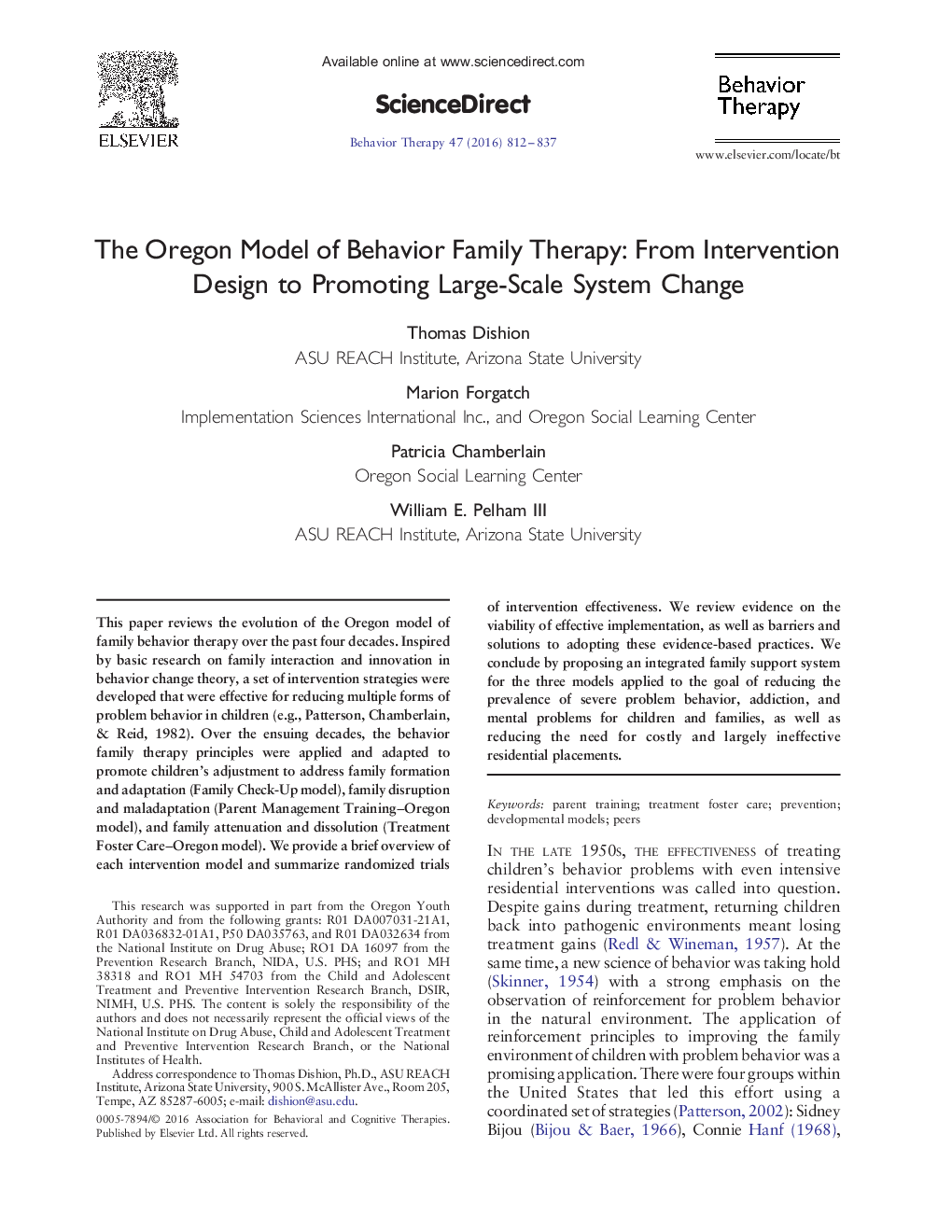| کد مقاله | کد نشریه | سال انتشار | مقاله انگلیسی | نسخه تمام متن |
|---|---|---|---|---|
| 5038001 | 1370243 | 2016 | 26 صفحه PDF | دانلود رایگان |

- Parent management training has evolved to cover the continuum from prevention to treatment foster care.
- The Family Check-Up focuses on engaging parents to change problematic parenting practices.
- PMTO has been implemented with success internationally.
- TFCO has been implemented with success internationally.
- The FCU, PMTO, and TFCO have all demonstrated long-term benefits to youth and families.
- The 3 interventions can be integrated conceptually to provide the full range of family-centered services to reduce the prevalence of problem behavior as well as the use of residential settings.
This paper reviews the evolution of the Oregon model of family behavior therapy over the past four decades. Inspired by basic research on family interaction and innovation in behavior change theory, a set of intervention strategies were developed that were effective for reducing multiple forms of problem behavior in children (e.g., Patterson, Chamberlain, & Reid, 1982). Over the ensuing decades, the behavior family therapy principles were applied and adapted to promote children's adjustment to address family formation and adaptation (Family Check-Up model), family disruption and maladaptation (Parent Management Training-Oregon model), and family attenuation and dissolution (Treatment Foster Care-Oregon model). We provide a brief overview of each intervention model and summarize randomized trials of intervention effectiveness. We review evidence on the viability of effective implementation, as well as barriers and solutions to adopting these evidence-based practices. We conclude by proposing an integrated family support system for the three models applied to the goal of reducing the prevalence of severe problem behavior, addiction, and mental problems for children and families, as well as reducing the need for costly and largely ineffective residential placements.
Journal: Behavior Therapy - Volume 47, Issue 6, November 2016, Pages 812-837